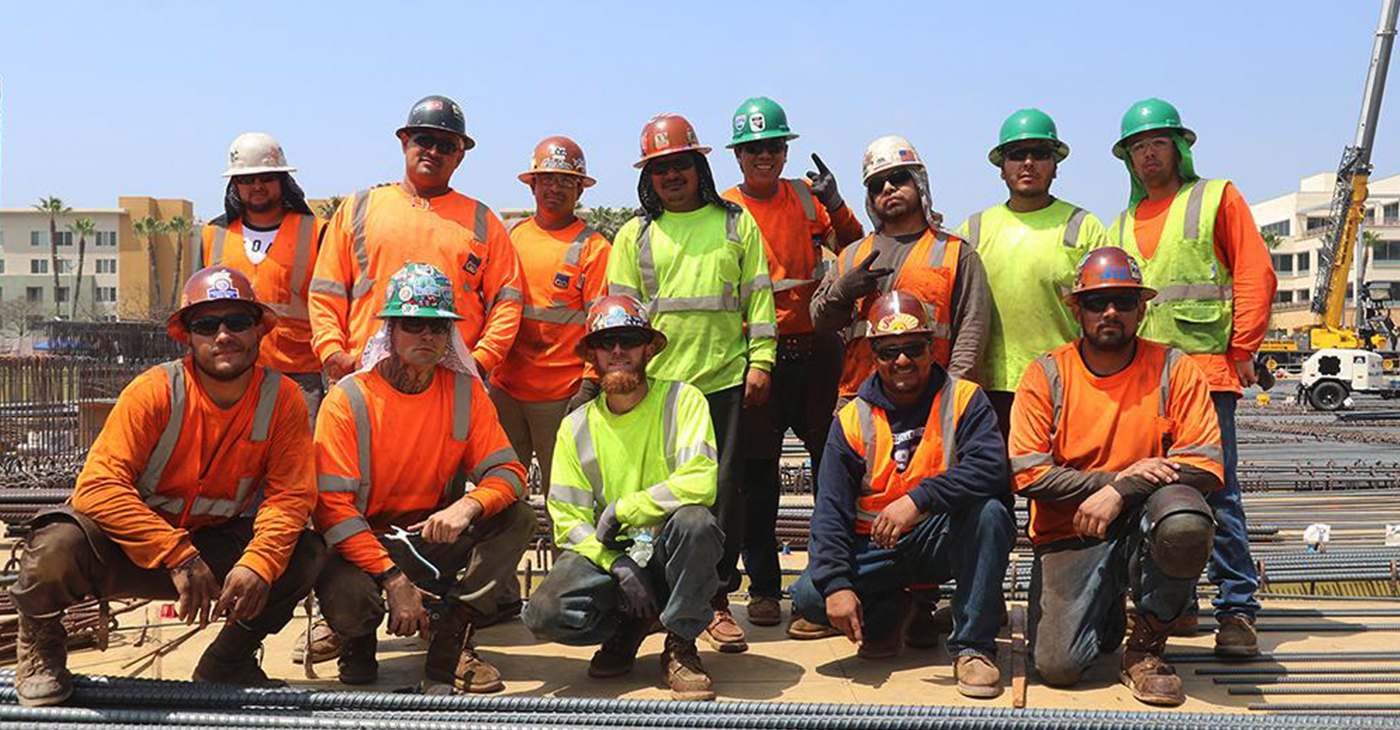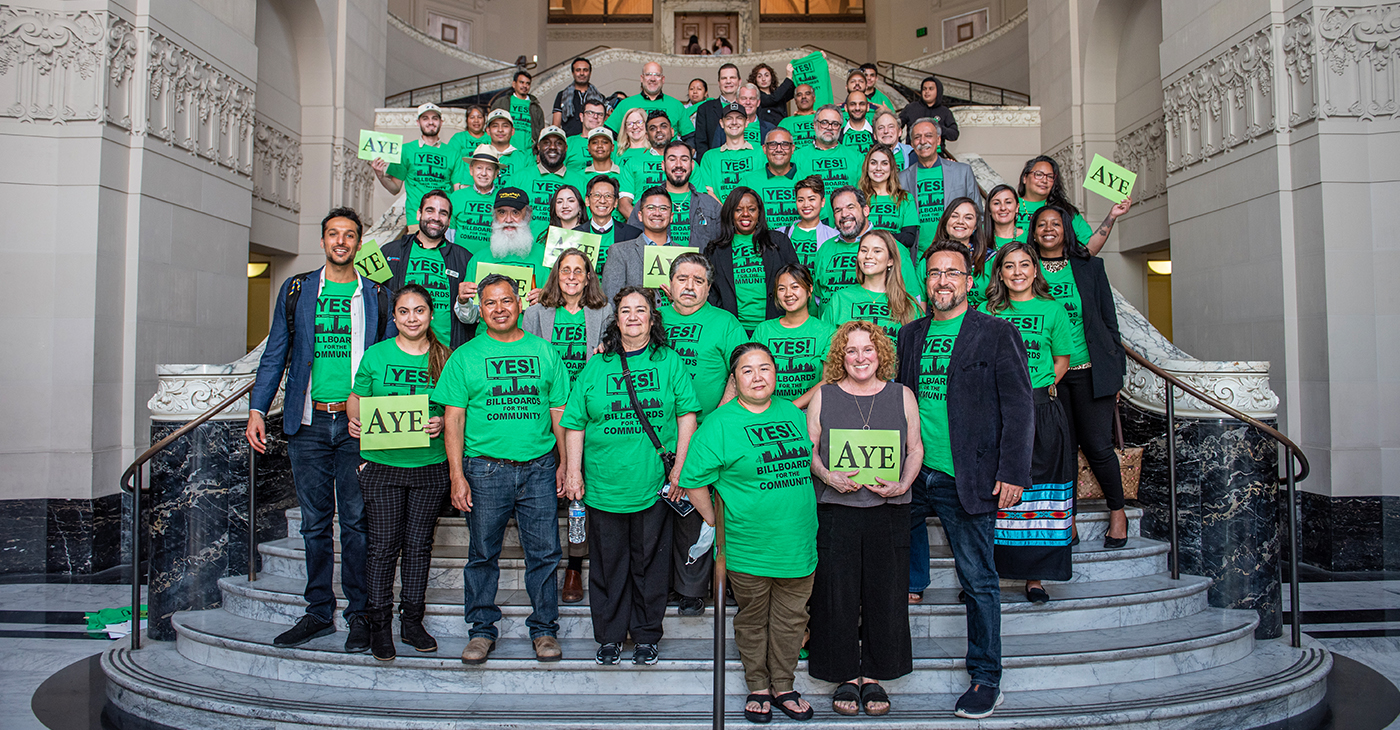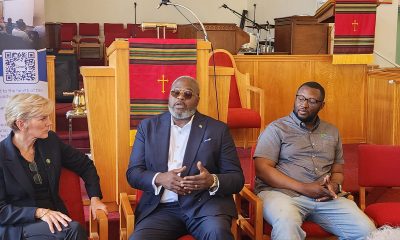Activism
Council Establishes Task Force to End Racially Inequitable Employment on City Construction Projects
Established by a unanimous vote of Council members at their October 5 meeting, the task force will be composed of members of the building trades and those who have been excluded from the unions and good-paying construction jobs, as well as representatives of agencies and community organizations that have a stake in the outcome of these discussions.

By Ken Epstein
The Oakland City Council is taking steps to implement a new report calling for the end of racially inequitable employment on construction projects by setting up a task force that is expected to come up with proposals to require steadily increasing equity in hiring for building projects that are funded by city money.
The report comes in the wake of the building trade unions’ request for a citywide Project Labor Agreement (PLA) that would guarantee that most city construction jobs would go to members of their unions.
The council’s policy goal is to produce equity in city-funded construction employment. Of the unions that reported, 2% of current union members are female, and 5% are Black.
Established by a unanimous vote of Council members at their October 5 meeting, the task force will be composed of members of the building trades and those who have been excluded from the unions and good-paying construction jobs, as well as representatives of agencies and community organizations that have a stake in the outcome of these discussions.
The task force is scheduled to meet for about three months and to report back to the City Council in January with its conclusions or to inform the Council how it is progressing. Meetings of the task force will be open to the public.
The work of the task force will not be easy. Participants must design proposals that undo the historic job discrimination that dominates the construction industry, which has long been protected by the building trades unions nationally and locally.
“The City of Oakland’s commitment to embed ‘fair and just’ into all the city does calls for reframing of building trades agreements to address the historical exclusion of Black, indigenous, People of Color (BIPOC) and women from building trade union membership and employment,” stated a report submitted to the City Council by Darlene Flynn, director of the city’s Department of Race and Equity.
“It will require a completely redesigned approach that assigns shared responsibilities to begin to reverse over 150 years of exclusionary history and its impacts,” the report said.
In her verbal report to Council members, Flynn said the written report to the council was difficult to produce because information was hard to obtain. Ultimately, 10 of 28 building trades unions submitted data on gender, race and ethnicity of their members.
“We’ve been working on this a couple of years to get to this point,” she said. “It’s been difficult to move the equity conversation forward because of the lack of information and data.”
Though difficult, obtaining data is key, she said.
“We use racial disparity data to start our conversation,” Flynn said. “Unemployment for Black residents nationally and in Oakland is always twice that of what it is for white residents. Unemployment for Latinos in the Oakland area runs about 1.5 times as high as white residents. These are the disparities that, over time, we want to close.”
Previous Project Labor Agreements (PLAs) have focused on the interest of labor, “which are very important,” Flynn said, but they neglected workforce equity. Now, the city can use a PLA “to advance workforce equity.
Looking at long-term job discrimination, Flynn said, “There has been no meaningful increase in the representation of Black workers in the building trades to date. This is not particular to Oakland; it is historic and embedded in the industry.
“We know we have to remove structural practices and barriers to inclusive opportunities for historically underrepresented groups in trades journey-level (jobs). It’s embedded as systemic racism and sexism are in our history and our institutions.”
Flynn emphasized that intentional equity work is the priority. “As a prerequisite for a PLA, (we must) do equity work first and then design and prepare the way for PLA workforce equity proposals.”
“This is an opportunity to do something very different as opposed to tweaking around the edges. Small changes are not going to make big outcomes,” she said, emphasizing that policies need to be stronger, and they need to be enforced.
Part of the change must be to educate workers on construction jobs to end racial and gender harassment against Black and women workers, Flynn said. “This is always part of change and culture shift from one reality to another.”
Councilmember Carroll Fife underscored the seriousness of the work the Council was undertaking.
“This conversation is painful for so many reasons,” Fife said. “This is going to be challenging for all of us because we have to course-correct where things have not been equitable historically, specifically for Black folks. And we have got to be honest about that.”
This is the second of a series of articles on Project Labor Agreements and racial equity analysis.
Activism
Oakland Post: Week of July 24 – 30, 2024
The printed Weekly Edition of the Oakland Post: Week of July 24 – 30, 2024

To enlarge your view of this issue, use the slider, magnifying glass icon or full page icon in the lower right corner of the browser window. ![]()
Activism
Oakland Post: Week of July 17 -23, 2024
The printed Weekly Edition of the Oakland Post: Week of July 17 -23, 2024

To enlarge your view of this issue, use the slider, magnifying glass icon or full page icon in the lower right corner of the browser window. ![]()
Activism
Community Celebrates Historic Oakland Billboard Agreements
We, the Oakland Billboard Economic Development Coalition, which includes Oakland’s six leading community health clinics, all ethnic chambers of commerce, and top community-based economic development organizations – celebrate the historic billboard agreements approved last year by the Oakland City Council. We have fought for this opportunity against the billboard monopoly, against Clear Channel, for five years. The agreements approved by Council set the bar for community benefits – nearly $70 Million over their lifetime, more than 23 times the total paid by all previous Clear Channel relocation agreements in Oakland combined.

Grand Jury Report Incorrect – Council & Community Benefit
We, the Oakland Billboard Economic Development Coalition, which includes Oakland’s six leading community health clinics, all ethnic chambers of commerce, and top community-based economic development organizations – celebrate the historic billboard agreements approved last year by the Oakland City Council. We have fought for this opportunity against the billboard monopoly, against Clear Channel, for five years. The agreements approved by Council set the bar for community benefits – nearly $70 Million over their lifetime, more than 23 times the total paid by all previous Clear Channel relocation agreements in Oakland combined.
Unfortunately, a recent flawed Grand Jury report got it wrong, so we feel compelled to correct the record:
- Regarding the claim that the decision was made hastily, the report itself belies that claim. The process was five years in the making, with two and a half years from the first City Council hearing to the final vote. Along the way, as the report describes, there were multiple Planning Commission hearings, public stakeholder outreach meetings, a Council Committee meeting, and then a vote by the full Council. Not only was this not hasty, it had far more scrutiny than any of the previous relocation agreements approved by the City with Clear Channel, all of which provide 1/23 of the benefits of the Becker/OFI agreements approved by the Council.
- More importantly, the agreements will actually bring millions to the City and community, nearly $70M to be exact, 23 times the previous Clear Channel relocation agreements combined. They certainly will not cost the city money, especially since nothing would have been on the table at all if our Coalition had not been fighting for it. Right before the decisive City Council Committee hearing, in the final weeks before the full Council vote, there was a hastily submitted last-minute “proposal” by Clear Channel that was debunked as based on non-legal and non-economically viable sites, and relying entirely on the endorsement of a consultant that boasts Clear Channel as their biggest client and whose decisions map to Clear Channel’s monopolistic interests all over the country. Some City staff believed these unrealistic numbers based on false premises, and, since they only interviewed City staff, the Grand Jury report reiterated this misinformation, but it was just part of Clear Channel’s tried and true monopolistic practices of seeking to derail agreements that actually set the new standard for billboard community benefits. Furthermore, our proposals are not mutually exclusive – if Clear Channel’s proposal was real, why had they not brought it forward previously? Why have they not brought it forward since? Because it was not a real proposal – it was nothing but smoke and mirrors, as the Clear Channel’s former Vice President stated publicly at Council.
Speaking on behalf of the community health clinics that are the primary beneficiaries of the billboard funding, La Clinica de la Raza CEO Jane Garcia, states: “In this case, the City Council did the right thing – listening to the community that fought for five years to create this opportunity that is offering the City and community more than twenty times what previous billboard relocation agreements have offered.”
Oakland Billboard Economic Development Coalition
| Native American Health Center | La Clínica de la Raza | West Oakland Health Center |
| Asian Health Services | Oakland LGBTQ Center | Roots Community Health Center |
| The Unity Council | Black Cultural Zone | Visit Oakland |
| Oakland African American Chamber of Commerce | Oakland Chinatown Chamber of Commerce | Oakland Vietnamese Chamber of Commerce |
| Oakland Latino Chamber of Commerce | Building Trades of Alameda County | (partial list) |
-

 Arts and Culture3 weeks ago
Arts and Culture3 weeks agoRooted in Tradition: The Intricate History of Black Hair Braiding
-

 Bay Area4 weeks ago
Bay Area4 weeks ago“I Will Not Be Bullied,” Says Oakland Mayor Sheng Thao
-

 Bay Area2 weeks ago
Bay Area2 weeks agoPG&E Increases Rates While Bay Area Households Are Struggling to Stay Afloat
-

 Business3 weeks ago
Business3 weeks agoGov Newsom: Raising Fast Food Minimum Wage to $20 Pays Off as Jobs Multiply in Industry
-

 Activism4 weeks ago
Activism4 weeks agoOpponents of Mayor Sheng Thao Are Calling on Her to Resign Following FBI Raid
-

 Bay Area2 weeks ago
Bay Area2 weeks agoJuneteenth Mass Shooting Suspect Charge with Multiple Counts of Felony Assault by Alameda County DA Pamela Price
-

 Community1 week ago
Community1 week agoHundreds Come to Jehovah’s Witnesses’ Assembly Hall for Three-Day Program of ‘Good News’ in Fremont
-

 Activism4 weeks ago
Activism4 weeks agoOakland Coliseum Sale to AASEG: A Model for Community Development and Inclusion




















































